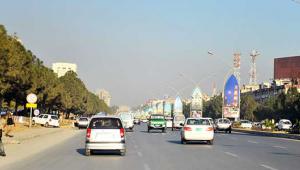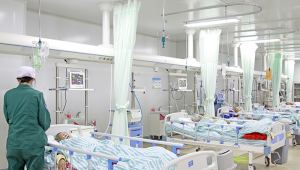By Vivienne Russell | 1 December 2014
The United Nations has admitted that it will not meet its target to have 70% of Ebola patients under treatment and 70% of victims buried safely by the start of December.
Although the target has been achieved in some areas, particularly in Liberia, Tony Banbury, head of the UN Mission for Ebola Emergency Response (UNMEER), said the mission would ‘almost certainly fall short’. Of greatest concern is Sierra Leona, especially its rural areas as well as Makeni in the centre and Port Loko in the north west of the country.
According to UNMEER’s November 25 statement, there have been 15,351 confirmed Ebola cases in eight different countries. There have been 5,459 reported deaths.
It noted that in Guinea, Ebola is spreading north up to the border with Mali, and area with no functioning treatment or transit centres.
Unsafe burial practices and community reticence were cited as the main obstacles to tracing people infected with the disease.
‘Reticence is often due to communities being disappointed with the [Ebola] response, for instance because of lacking ambulance services or support to the families (often due to logistical and funding shortcomings),’ the statement reported.
‘In addition, national contact tracing staff is often not paid or paid very little which creates a lack of incentive.’
Responding to the announcement, the British Red Cross called for eradication efforts to be scaled up.
Katie Attfield, head of disaster management at the charity, said: ‘Projections by the UN confirm our abiding concerns that our efforts to stem the spread of Ebola remain behind the transmission curve. More is required in the recruitment of personnel, funding for response work and the provision of more resources and equipment to fight this Ebola outbreak.
‘Following a recent surge of optimism that the virus was coming under control, especially in parts of Liberia, we have noted that new cases are flaring up in new locations in Sierra Leone and Mali. While we have made some very good progress elsewhere, it’s absolutely premature to start being optimistic as a lot remains to be done.’
She added that the most effective way to halt the spread of Ebola was to stop it at source, providing information to affected communities, tracing and isolating infected people, deploying effective burial teams and health personnel and ensuring a co-ordinated international response.
A total of $121m has been pledged to the Ebola Response Multi-Partner Trust Fund. But the Office for the Coordination of Humanitarian Affairs’ Ebola Virus Outbreak Overview of Needs and Requirements, estimated around $1.5bn is needed to tackle the outbreak, of which only about 52% ($779m) has been so far funded.













